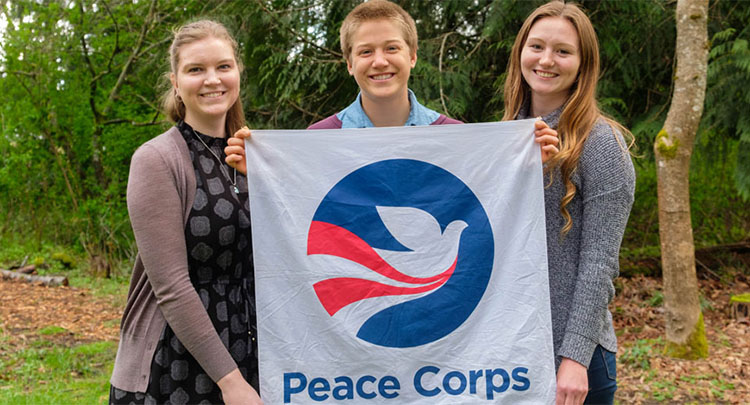Page 372 • (4,094 results in 0.016 seconds)
-
Transfer alum finds community at PLU on and off the court Posted by: vcraker / September 9, 2021 September 9, 2021 Read Previous Alumni mentorship helps student land dream internship in Boston Read Next PLU named 3rd best college for value in the West LATEST POSTS PLU Scores 4.5 out of 5 on Campus Pride Index: What does that mean? November 21, 2024 YouTube Short: A quick campus tour and Lute lingo with Zari Warden November 19, 2024 Major Minute Monday: Global Studies November 18, 2024 You Ask
-
YouTube Short: Men’s Ultimate Frisbee Posted by: shortea / March 13, 2023 March 13, 2023 Read Previous You Ask, We Answer: PLU is too close to home…or is it? Read Next On the Court and in the Classroom: A Brother and Sister Find Success at PLU LATEST POSTS PLU Scores 4.5 out of 5 on Campus Pride Index: What does that mean? November 21, 2024 YouTube Short: A quick campus tour and Lute lingo with Zari Warden November 19, 2024 Major Minute Monday: Global Studies November 18, 2024 You Ask, We
-
Sample Resumes by MajorProvided below are sample resumes by each major. To view the full-size PDF for the sample resume, you may either click on the button, or the thumbnail image above it. Biology Resume Business Resume Chemistry Resume Communication Resume Computer Science Resume Criminal Justice Resume Earth Science Resume Education Resume English Resume Graphic Design Resume Hispanic Studies Resume History Resume Interdisciplinary Program Resume Kinesiology Resume Military Resume Music
-
Interdisciplinary Studies will submit a proposal to the program director (currently the Interim Dean of Interdisciplinary Studies). Proposals should include the elements listed below.1. Personal Information: Your name Student ID Current major(s) or minor(s) and if you intend to retain those majors/minors or if this degree will be replacing them. Intended graduation date 2. Statement of Objectives (no more than 350 words) The student describes what the degree is expected to represent and why the individualized
-
November 19, 2024 Major Minute Monday: Global Studies November 18, 2024 You Ask, We Answer: Do you have Marine Biology? November 15, 2024
-
Photo from the Pierce County Photo Gallery, https://www.co.pierce.wa.us/gallery.aspx?PID=568 Dear Chambers-Clover Creek Watershed Council, In our Environmental Studies 350 lab work, we found that nutrients like phosphates are present in Clover Creek at concentrations near the Washington Department of Ecology’s moderate concern level. These nutrients are often introduced to the watershed through the use of fertilizers. Because they can lead to algal blooms, which disturb both wildlife and
-

“The new labs will allow us to fully integrate and maximize simulations into our graduate and undergraduate curriculum,” said Barbara Habermann, dean of the School of Nursing. “The center gives students a place to learn and practice nursing skills before they use them in a hospital setting,” said Jodi Kushner, assistant professor and simulation coordinator in the School of Nursing. “The simulation suites will give students more opportunities to learn clinical judgment and critical thinking
-

Remove Back New Delete Peace Corps Prep Academic Programs all programs program website Peace Corps Prep Undergraduate It’s FREE to apply to PLU When you're ready, we're here. Apply now and fulfill your potential! Get Started Related Programs: Biology Education Environmental Studies Global Studies Health Services Pre-Health Sciences DISCOVER About Calendar Campus Map Land Acknowledgement Careers at PLU Lute Locker PLANNING Student Payments Textbooks Make a Gift Conference Planning RESOURCES Privacy
-
Save Add Edit Remove Back New Delete Documents and Forms Summer Institute in Pastoral Theology 2016 Site Menu Home Schedule Speakers Stay with us Directions Contact Information Summer Conference in Pastoral Theology Email: torvensa@plu.edu Pacific Lutheran University 12180 Park Avenue S. Tacoma, WA 98447 Divisional Links Lutheran Studies Contact Information Summer Conference in Pastoral Theology Email: torvensa@plu.edu Pacific Lutheran University 12180 Park Avenue S. Tacoma, WA 98447 Divisional
-
to the National ELCA Indian Boarding School’s “Truth-Seeking and Truth-Telling Initiative” Directly following this year’s Lutheran Studies conference is the National Day of Remembrance for Indian Boarding Schools on Sept 30, 2024, and Indigenous People’s Day on October 14, 2024.
Do you have any feedback for us? If so, feel free to use our Feedback Form.


